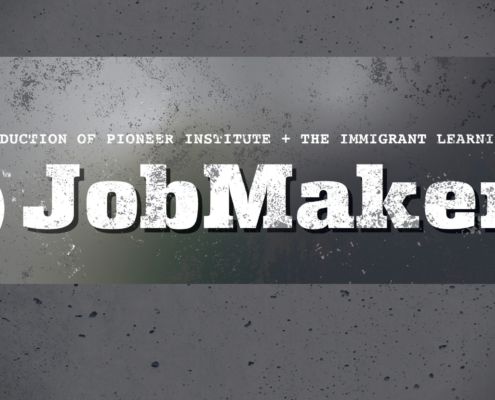Study Suggests How to Advance Fairness, Predictability of “Payment in Lieu of Taxes” Programs Aimed at Nonprofits
BOSTON – Pioneer Institute calls for increased transparency over the basis for payment in lieu of taxes (“PILOT”) agreements between municipal governments and nonprofit organizations, while also encouraging nonprofits to publicize and expand the community benefits they provide, in a new white paper published today.
In recent years, an increasing number of cities have turned to private schools, hospitals, and other charitable organizations to fill perennial budget gaps, especially in parts of the country that are heavily reliant on property taxes. In 2010, Massachusetts alone was home to over 70 percent of the municipal PILOT programs in the United States.
“The danger with PILOT programs is that the politics can get in the way of meaningful efforts to serve the public,” said Andrew Mikula, who co-authored PILOT Agreements: Nonprofits’ Fair Portion or Government Extortion? with Nina Weiss. “A more systematic approach to PILOT agreements at the local level can help tie payment amounts more explicitly to services provided, adding legitimacy to the process.”
Often, PILOT agreements are negotiated one at a time, with significant discretion on the part of municipal officials and nonprofit boards alike. The result is often a lack of parity between similar organizations. For example, Clark University pays Worcester 20 percent of the equivalent property tax it would pay if it were a for-profit entity under its PILOT agreement, amounting to over $300,000 in fiscal year 2019. Meanwhile, the better-endowed College of the Holy Cross pays a flat fee of $80,000 per year.
A complicating factor is that some nonprofits buy up residential properties to house staff and students, thus taking properties off the tax rolls. Some municipal officials have questioned the precedent of tax exemption for all nonprofit-owned real estate in an era in which many schools and hospitals have billion-dollar endowments and substantial power in state and local politics.
Among the most successful examples of a formulaic, standardized PILOT program is in Boston. The city seeks voluntary annual payments corresponding to commercial tax levies on 25 percent of the value of real estate and personal property owned by nonprofits, exempting the first $15 million of property and deducting up to 50 percent for community benefits provided. Even during the COVID-19 pandemic, nonprofits met 79 percent of Boston’s PILOT payment requests, the same as in fiscal year 2019.
However, the efforts of smaller cities to replicate Boston’s program have been less successful. Experts have argued that Boston’s collection of 25 percent of would-be property tax levies from nonprofits is too high to justify the costs of providing services to those organizations, and the cost of public safety and public works in most Massachusetts cities is far lower than in Boston.
Northampton’s PILOT program set property tax exemption amounts at $1 million, compared to Boston’s $15 million, with the result that many smaller organizations simply refused to participate.
Pioneer’s report also catalogues some advice for nonprofit boards in handling PILOT requests. A series of releases from the National Association of Independent Schools suggests that proactively cultivating better relationships with municipal officials and investing in community services and outreach may give nonprofits more political leverage in PILOT agreement debates.
“Local officials should know that PILOT programs are not a substantial solution to long-standing fiscal troubles in municipal governments,” said Pioneer Institute Executive Director Jim Stergios. “But finding a fair middle ground for large nonprofits to subsidize at least a portion of the cost of local services could help relieve the tax burden on residents and small businesses.”
About the Author
Andrew Mikula is an Economic Research Analyst at Pioneer Institute. Mr. Mikula was previously a Lovett & Ruth Peters Economic Opportunity Fellow at Pioneer Institute and studied economics at Bates College.
Nina Weiss is a Roger Perry Research Intern at the Pioneer Institute. Research areas of particular interest to Ms. Weiss include education and transportation. She is currently a student at Johns Hopkins University studying Sociology and International Relations.
Pioneer’s mission is to develop and communicate dynamic ideas that advance prosperity and a vibrant civic life in Massachusetts and beyond.
Pioneer’s vision of success is a state and nation where our people can prosper and our society thrive because we enjoy world-class options in education, healthcare, transportation and economic opportunity, and where our government is limited, accountable and transparent.
Pioneer values an America where our citizenry is well-educated and willing to test our beliefs based on facts and the free exchange of ideas, and committed to liberty, personal responsibility, and free enterprise.
Get Updates on Our Economic Opportunity Research
Related Posts:









